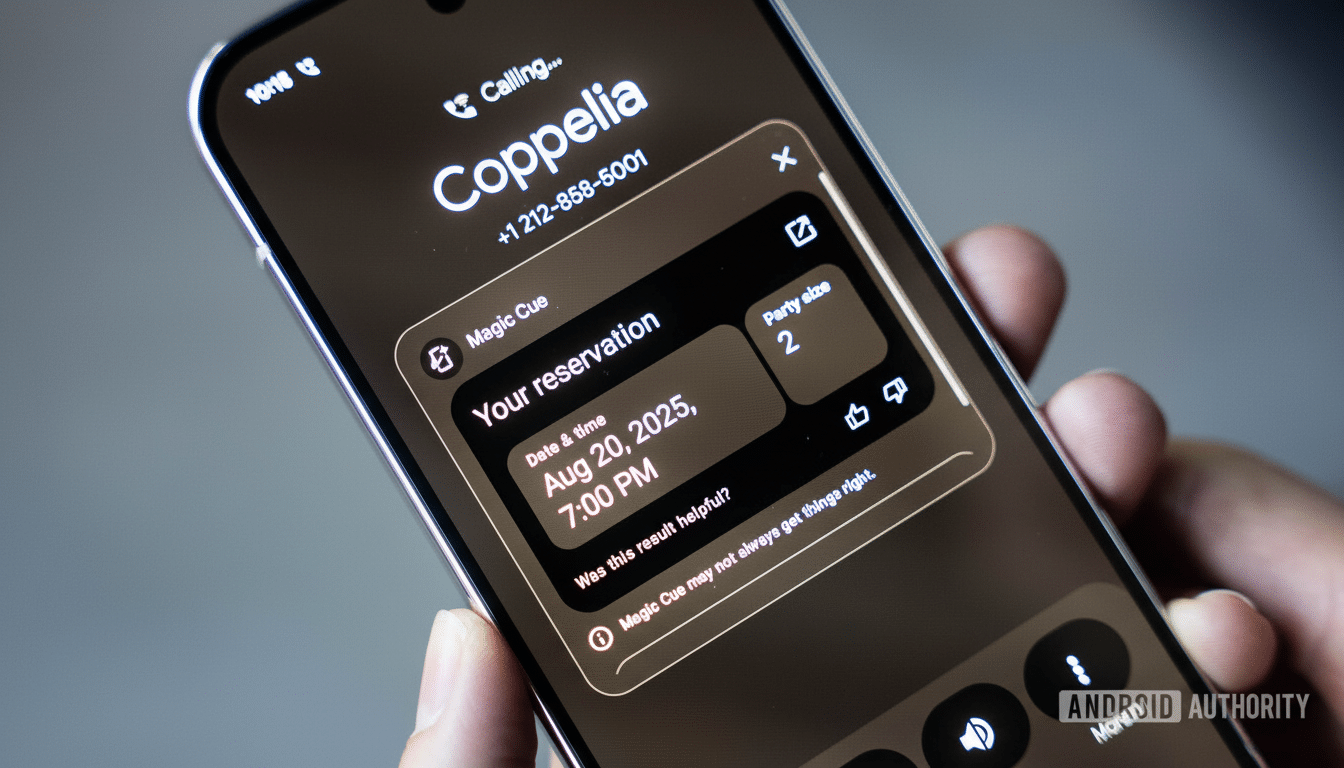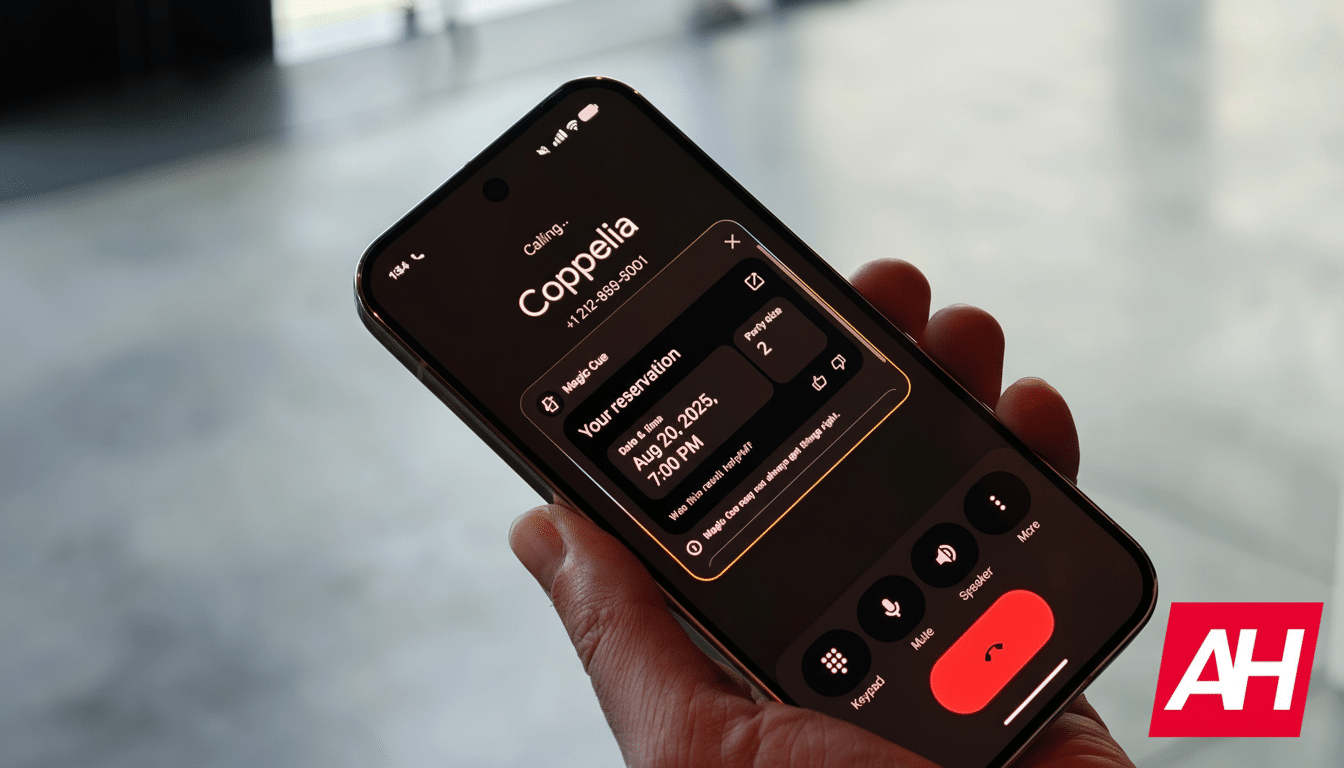“The right info, right when you need it” is a heckuva promise. One month in, living with Magic Cue on the Pixel 10 feels more like an ad slogan than the truth. I granted the feature full permission, committed to Google’s ecosystem and structured my routine around setting it off. The verdict: Magic Cue doesn’t make many appearances, and when it does come out to play you can bet that it is wrong or redundant, or too weak to faze you.
What Magic Cue Is Meant to Do on the Pixel 10
Magic Cue is positioned as an AI layer that groks context across calls, texts and apps — then surfaces timely prompts: your reservation when calling for a table at a restaurant; your itinerary when phoning an airline; or a precise response within Google Messages. Under the hood, it relies on device-based intelligence fueled by data from Gmail, Calendar, Contacts and recent screen activity to solidify those nudges.

That design should minimize friction. You act as you would anyway; Magic Cue respects the silence. It is, in practice, not so much prescient help as a feature looking for the right demo.
Where It Stumbles in Reality for Everyday Use
Calls: I made multiple calls to customer service numbers for airlines, venues and ticketing services, ones with confirmed details in Gmail (you might have to click “More” on the left) and Calendar. Magic Cue almost never triggered. It made the single call it makes, to show a completed trip rather than an upcoming flight — useful yesterday, useless today. If a system cannot do its job and resolve “next flight,” it undermines the very use case that it was built to own.
Texts: In Google Messages, prompts were unpredictable. Magic Cue instantly recommended the venue — twice, in slightly different styles, probably from Gmail and Calendar. That redundancy telegraphs indecision, not confidence. When I was asked “When is our flight on Friday?”, it suggested that I propose a time in 24-hour format and, worse, it yanked the return date instead of the outbound leg. For normal types of activities — movies, dinner, shows — prompts never showed up at all, even when there were clear calendar entries.
Search handoffs: Google also says that Magic Cue can hand off the context of what you were just looking at from Maps. It did when I visited a curated restaurant site and then opened Maps on the spot; it stuttered if I went to apps for recommendations, like Reddit. And because Search and Maps already surface their actions (call, directions, save), Magic Cue seldom provided much in the way of speed or clarity. I had to manufacture the situation in order for it to be helpful.
Why the AI Fails at Timely, Contextual Assistance
Context bounds: Magic Cue is obviously biased toward Google-first sources and well-structured data. Messier inputs — ticket attachments, forwarded emails, SMS confirmations with unusual layouts — tripped it up. This is a classic grounding problem: The system cannot systematically translate real-world entities (next flight, show time tonight) to the correct records at the right times.

Trigger logic: The feature strikes me as brittle heuristics. If the phone number, app and phrasing aren’t a narrow hit, the cue never fires. UX researchers at Nielsen Norman Group have observed for some time that bad automation will elicit trust bupkis faster than no automation at all, and Magic Cue falls prey by being so very noticeable when absent.
Latency and risk: On-device models keep data private and fast, but can be conservative. When the system is unsure, it frequently takes a pass. That’s secure but self-defeating for a feature whose appeal is spontaneity.
Privacy, Data and the Reality Check for Magic Cue
I gave it relatively broad access — Gmail, Calendar, Contacts, screenshots and recent activity. Even so, Magic Cue under-delivered. The void suggests a larger problem: the volume of permission does not translate to understanding. Industry work from Stanford HAI and other sources has made it clear that more data only benefits if models can correctly normalize it and perform true entity-intelligent reasoning. Magic Cue generally seemed aware but not fully rooted.
Another limitation: It is applicable only on Google Messages for texting. If your group chat lives in a third-party app, this feature might as well not even exist. That narrow focus makes it difficult for Magic Cue to become a habit as opposed to a novelty.
What It Would Take to Fix It and Build Trust
- Deterministic connectors: Create solid, vendor-specific parsers for the most popular itineraries, ticketing barcodes, and reservation formats. Don’t just use extraction at free-form.
- Entity resolution biased to recency: If there are multiple candidates (two flights, two venues), by default show the most recent with a single-tap toggle to alternatives.
- Transparent prompts: Give a little “Why this?” explainer and let users fix a cue. Those confirmations can teach better matching without revealing private data.
- Wider surfaces: Go beyond Google Messages, or at least onboard structured notifications from major messaging apps to prevent disappearing from current conversations.
- Quality metrics that matter: Measure success in “first cue, first correct,” not just activation rate. When the first suggestion isn’t correct most of the time, the feature turns into noise.
Bottom Line: Magic Cue Isn’t Ready for Prime Time
Magic Cue on the Pixel 10 is a demonstration reel: powerful, but exhausting in practice. Through dozens of calls and conversations, it rarely anticipated my needs, and often seemed to misunderstand obvious context. It’s a great idea; the execution falls short. Until data grounding gets more secure, support expands and the hit rate goes up, Magic Cue isn’t a Pixel 10 purchase motivation. It’s a reminder that “magical” AI still has to get the basics right before it can really disappear into the experience.

